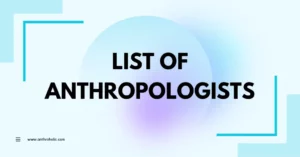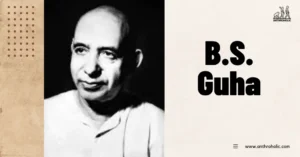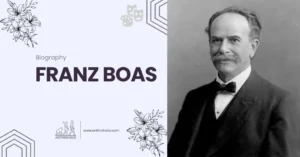AI Answer Evaluation Platform Live Now. Try Free Answer Evaluation Now
Gordon V Childe
Vere Gordon Childe or Gordon V Childe wasn’t just an archaeologist-he was a historian of revolutions. One of the most provocative and influential figures in 20th-century archaeology, Childe transformed the field by applying Marxist theory to prehistoric societies. At a time when archaeology often focused on racial typologies and isolated artifacts, Childe insisted that material remains must be interpreted in the context of economic systems, labor, and social transformation.

He coined two foundational concepts still used today: the Neolithic Revolution, which described the shift from foraging to farming, and the Urban Revolution, which explained the rise of cities and complex states. These weren’t just technical labels for him-they were stages in human social development, marked by class struggle, technological change, and shifts in social organization.
A prolific writer and committed socialist, Childe bridged the gap between prehistory and history, offering sweeping syntheses of human development grounded in both archaeological evidence and political philosophy. His most famous works, Man Makes Himself and What Happened in History, continue to be read for their clarity, ambition, and theoretical insight.
Early Life and Education
Vere Gordon Childe was born on April 14, 1892, in Sydney, Australia, into a middle-class Anglican family. His father was a minister, and Childe was raised in a traditional, well-educated household. He attended Sydney Church of England Grammar School, where he excelled in languages, literature, and classical studies.
He went on to study at the University of Sydney, earning a degree in classics and comparative philology. His academic brilliance earned him a Rhodes Scholarship to Oxford University in 1914, where he continued studying ancient languages and Indo-European culture. However, his time at Oxford coincided with World War I, and Childe-an outspoken pacifist-found himself increasingly alienated from both the British establishment and the imperialist ideologies that underpinned much of classical education at the time.
During this period, Childe also became increasingly interested in socialism, labor history, and radical politics. Influenced by thinkers such as Karl Marx and Friedrich Engels, he began to view history as a process shaped not by great men or civilizations, but by economic forces, class conflict, and technological change.
Academic Career and Political Context
After finishing his studies, Childe returned to Australia, where he briefly worked as a political secretary for the Australian Labor Party and wrote for leftist publications. However, his outspoken socialist views, anti-war stance, and critiques of the British monarchy drew suspicion from conservative authorities. He was monitored by Australian intelligence and marginalized in academic circles.
Frustrated with the political climate, Childe returned to Britain in the early 1920s and began a new career in archaeology, a field then undergoing rapid expansion. He secured work with the Royal Commission on Ancient Monuments in Wales and Monmouthshire and began building a reputation as a scholar who could combine deep theoretical insight with accessible writing.
In 1927, he was appointed Abercromby Professor of Archaeology at the University of Edinburgh, where he remained for nearly two decades. During this time, he began publishing a series of ambitious, comparative studies of European prehistory, always seeking to understand ancient societies through the lens of production, labor, and material life.
He later became director of the Institute of Archaeology in London (1946–1956), helping to institutionalize archaeology as a professional and interdisciplinary field. Throughout his academic career, Childe maintained his socialist worldview, and while he was never a member of the Communist Party, his writings were deeply shaped by Marxist ideas about history, economy, and human agency.
Marxist Archaeology and Materialist Approach
Gordon Childe was one of the first archaeologists to consistently apply historical materialism-a Marxist framework-to the study of prehistoric societies. He viewed history not as a timeline of cultural achievements, but as a series of economic transformations driven by changes in production, technology, and class relations.
Childe rejected the culture-historical approach dominant in early 20th-century archaeology, which often emphasized racial typologies and artifact classification without addressing the social structures that produced them. Instead, he focused on how societies organized labor, controlled surplus, and developed tools, arguing that these material conditions shaped social organization, ideology, and even belief systems.
He was especially critical of colonial and Eurocentric views that saw European civilization as the pinnacle of human progress. Instead, Childe emphasized the importance of Mesopotamia, Egypt, and the Indus Valley as cradles of early urban development.
His approach laid the foundation for what would later become known as processual archaeology, though Childe himself remained committed to a Marxist, humanistic vision rather than the positivism that characterized later archaeological science.
Major Theories and Key Publications
Childe’s two most famous theoretical contributions are the Neolithic Revolution and the Urban Revolution-both concepts that remain widely taught today.
The Neolithic Revolution
In his book Man Makes Himself (1936), Childe introduced the idea of the Neolithic Revolution, describing the fundamental shift from hunting and gathering to agriculture and animal domestication around 10,000 years ago. He saw this change as a social and economic transformation that gave rise to sedentary life, surplus production, and eventually class divisions.
The Urban Revolution
In What Happened in History (1942), Childe outlined the Urban Revolution, referring to the emergence of the first cities and states in Mesopotamia around 3000 BCE. He identified key traits of urban societies: writing, surplus economy, class hierarchy, monumental architecture, and centralized power. This model influenced both archaeology and early sociology.
Other important works include:
- The Dawn of European Civilization (1925)
- Progress and Archaeology (1944)
- A Short Introduction to Archaeology (1956)
Childe was also a prolific synthesizer. He drew from vast amounts of archaeological data across Europe and the Near East to construct broad, comparative narratives of social development, always with an eye toward material conditions and class dynamics.
Legacy in Archaeology and Social Theory
Childe’s influence is hard to overstate. He redefined the scope of archaeology, turning it into a discipline concerned not just with artifacts but with societal change. His comparative and economic focus inspired generations of archaeologists, especially those with an interest in social justice, inequality, and historical process.
Although his overt Marxism became less fashionable in the Cold War years, many of his insights were incorporated into the New Archaeology (processual archaeology) of the 1960s and 70s, and his work enjoyed a resurgence in the 1990s with the rise of critical and postcolonial archaeology.
He is also remembered as a rare intellectual who was both a rigorous scholar and a committed public thinker, writing in accessible prose and addressing major questions about what it means to be human in material, historical terms.
Conclusion
V. Gordon Childe reimagined archaeology as a science of societal transformation, not just a study of relics. With his Marxist lens and historical insight, he helped shift the discipline away from typology and racial theory toward a materialist understanding of how human societies evolve through production, labor, and collective organization.
His contributions-especially the Neolithic Revolution and Urban Revolution-gave scholars a framework for interpreting sweeping changes in human history. But more than that, Childe insisted that the past mattered for the present. He believed that by understanding how inequality, technology, and surplus first shaped civilization, we could better confront the social questions of our own time.
Childe’s work has had a lasting legacy not only in archaeology but in the broader social sciences and humanities. He paved the way for processual and post-processual archaeologies, influenced Marxist and world-systems theorists, and inspired critical approaches to inequality, power, and ideology in material culture.
His death in 1957-likely a suicide-cut short a remarkable career, but his intellectual legacy continues. In a world still defined by class conflict, urban crises, and technological upheaval, Childe’s call to study the material roots of social change feels more relevant than ever.
References
- V. Gordon Childe | Neolithic Revolution, Prehistoric … – Britannica
Overview of Childe’s work on European prehistory and his influence on archaeological theory.
https://www.britannica.com/biography/V-Gordon-Childe - Vere Gordon Childe – Australian Dictionary of Biography
Detailed account of Childe’s life, work, and legacy in the field of archaeology.
https://adb.anu.edu.au/biography/childe-vere-gordon-5580 - V. Gordon Childe Biography – The Famous People
Biography emphasizing Childe’s educational background and archaeological contributions.
https://www.thefamouspeople.com/profiles/v-gordon-childe-6325.php - Gordon Childe and Marxist Archaeology – International Socialism
Discussion of Childe’s Marxist approach to archaeology and its impact on the field.
https://isj.org.uk/gordon-childe-and-marxist-archaeology/ - The Archaeology of V. Gordon Childe: Contemporary Perspectives – University of Chicago Press
Collection of essays evaluating Childe’s achievements and their significance today.
https://press.uchicago.edu/ucp/books/book/chicago/A/bo3639834.html - V. Gordon Childe – BBC History
Brief biography highlighting Childe’s career and contributions to archaeology.
https://www.bbc.co.uk/history/historic_figures/childe_gordon.shtml - Vere Gordon Childe and Prehistory: A Way of Thinking, and Much More – International Socialism
Analysis of Childe’s approach to prehistory and his theoretical perspectives.
https://isj.org.uk/v-gordon-childe-prehistory/ - Twin Passions – Inside Story
Article discussing Childe’s dual commitment to archaeology and socialism.
https://insidestory.org.au/twin-passions/




